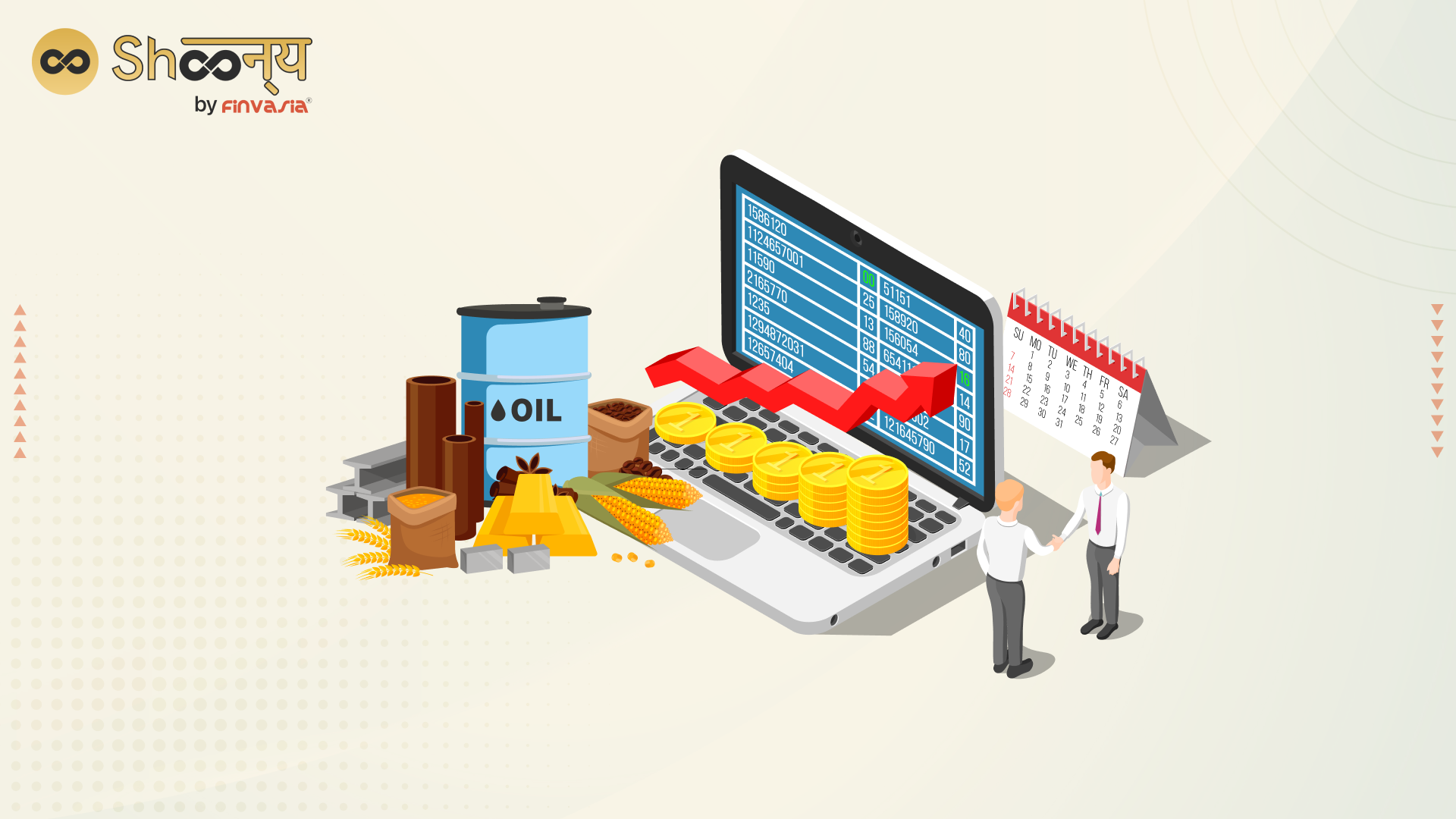Exploring the Forward Trading in Commodities: Meaning, Advantages, and Disadvantages

Forward trading in commodities has become a pivotal part of the financial landscape, often discussed alongside futures trading. But what exactly are forward contracts, and how do they differ from futures contracts? In this comprehensive guide, we will demystify forward trading in commodities, explore the key distinctions between forwards and futures, delve into real-world examples, and shed light on the forward markets in India.
Forward Trading Meaning
Forward market trading, in the context of the Indian economy, refers to the financial market where participants engage in contracts to buy or sell assets (such as currencies, commodities, or financial instruments) at a predetermined price on a future date. These contracts are known as forward contracts, and they are customised agreements between two parties to exchange a specified quantity of an asset at an agreed-upon future date.
Advantages of Forward Market Trading
- Price Hedging: Forward contracts allow businesses to hedge against price fluctuations in essential commodities like oil, agricultural products, or foreign currencies. This helps them manage risk and stabilize their costs.
- Customization: Forward contracts can be tailored to meet the specific needs of the participants, including the quantity, price, and delivery date. This flexibility is particularly valuable in industries with unique requirements.
- Price Discovery: Forward markets provide valuable information about future price expectations. By observing forward prices, market participants can gain insights into future supply and demand dynamics.
- Reduced Transaction Costs: Forward contracts are typically traded over-the-counter (OTC), which can lead to lower transaction costs compared to standardized exchange-traded contracts.
Disadvantages of forward market trading in the Indian economy
- Counterparty Risk: Forward contracts are bilateral agreements, and there is a risk that one party may default on its obligations. This credit risk can be a significant concern for participants.
- Lack of Liquidity: Forward markets may lack the liquidity and transparency of exchange-traded markets, making it challenging to enter or exit positions at desired prices.
- Regulatory Complexity: The regulatory framework for forward markets can be complex, and participants must navigate legal and compliance requirements.
- Limited Accessibility: Forward markets may not be accessible to all types of investors or businesses, limiting their ability to utilize these markets for risk management.
- Price Movements: While forward markets can help in hedging against price movements, they cannot eliminate market risk entirely. If prices move against a participant’s position, it can result in financial losses.
- Opportunity Cost: Entering into a forward contract means committing to a specific price, which may result in missed opportunities if market prices move favorably.
Understanding Forward Contracts
Forward contracts and futures contracts might appear similar on the surface, both involving commitments to transactions at future dates and agreed-upon prices. The fundamental premise is simple: when the commodity’s price at contract expiry surpasses the contracted price, the buyer profits, and conversely, if the price is lower, the seller benefits.
However, forward contracts and futures contracts differ in several significant ways. Firstly, futures contracts are standardized, featuring predetermined lot sizes and strike prices, making them highly tradable. Conversely, forward contracts are customized agreements between two parties.
Secondly, forward contracts entail counterparty risk because a default by one party can jeopardize the entire contract. Futures contracts, on the other hand, carry a counter-guarantee by the exchange, mitigating counterparty risk, as the clearing corporation acts as the counterparty to each transaction.
Lastly, forwards are not traded on any exchange, whereas futures are contracts defined and traded on recognised stock exchanges..
Challenges in Forward Market Trading
Despite their potential advantages, forward markets face several challenges. One of the most significant hurdles is the lack of price discovery, which is more effectively achieved in futures markets due to standardization. Counterparty risk remains a major obstacle to forward market development, and entry barriers have historically favored large institutions over small and mid-sized investors.
Conclusion
In conclusion, forward trading in commodities offers unique benefits and challenges. Understanding the nuances of forward contracts versus futures contracts is essential for effective risk management and investment decisions. As forward markets continue to evolve in India, addressing issues related to counterparty risk and entry barriers will be critical to their future growth and development.
FAQs| Forward Contract
An example of a forward contract in commodities is when a coffee producer agrees to sell 1,000 bags of coffee beans at a fixed price to a distributor for delivery six months from now.
Yes, forward contracts often relate to commodities, as they are frequently used for hedging and securing future prices for agricultural products, metals, and energy resources.
Forwards and futures play a crucial role in commodities trading by allowing market participants to manage price risk. While forwards are customisable and often used for specific needs, futures offer standardised contracts for broader trading.
Forward trading involves agreeing to buy or sell a commodity at a predetermined price and date. It works by locking in prices today for future delivery, providing stability and risk management for both buyers and sellers in commodities markets.
______________________________________________________________________________________
Disclaimer: Investments in the securities market are subject to market risks; read all the related documents carefully before investing.








